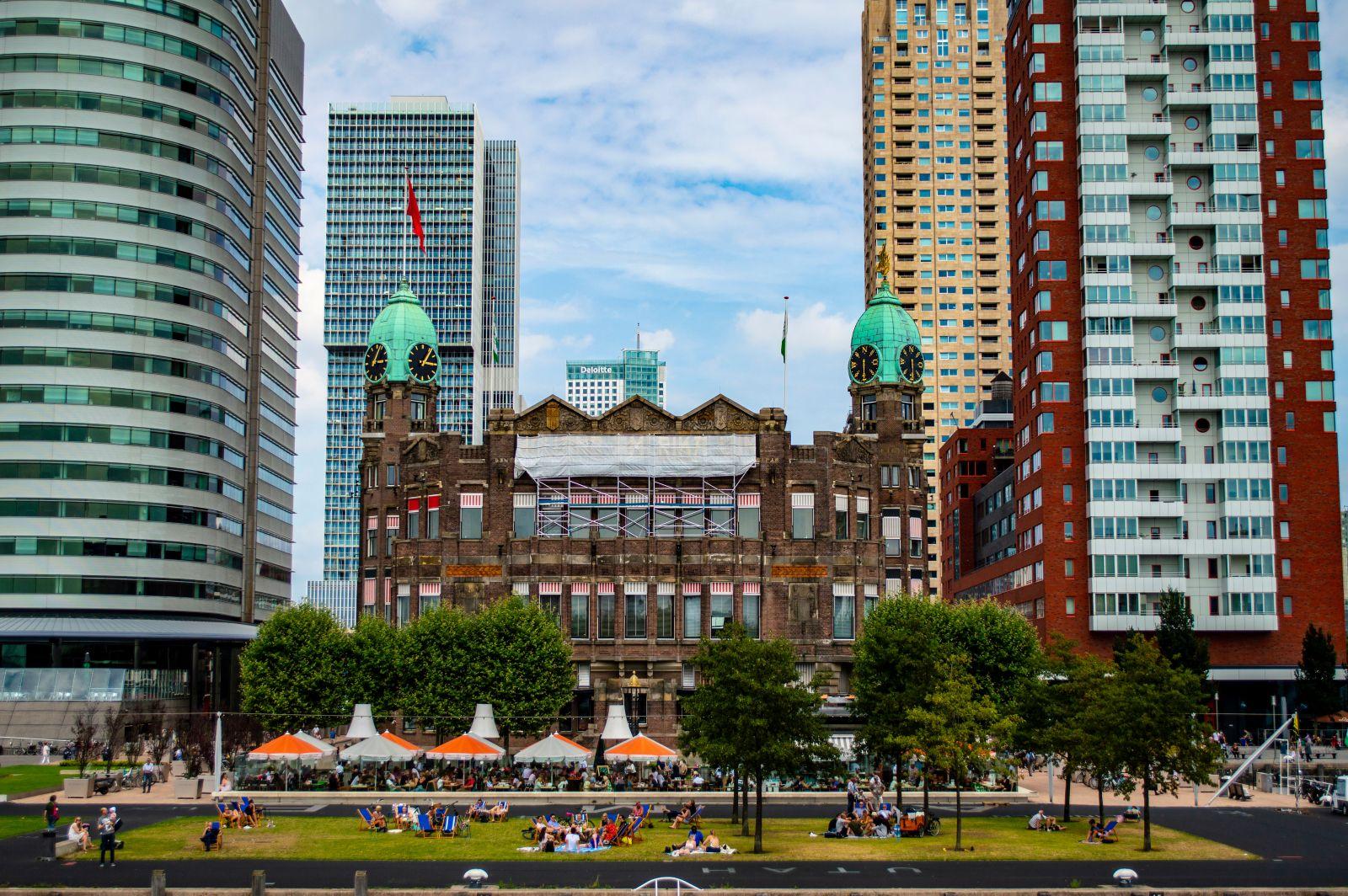Healthy soil with Nature-based Solutions
The European Horizon project PHISHES (PHysically-based Integrated Soil Health Simulation Platform) was launched in September 2024. Deltares cooperates with other European partners on a platform calculating the effects of climate and measures on soil and ecosystem vitality. In cooperation with the PHISHES partners and the municipality of Rotterdam, Deltares coordinates the work package on developing scenarios and nature-based solutions and one case study (test location Rotterdam).

Nature-based Solutions

The main questions we aim to answer in PHISHES are: How do land use and soil contamination affect soil health and ecosystem services, or the functions that the ecosystem provides to humans, under the influence of major developments such as climate change? And how can we predict the long-term effects of mitigation and adaptation measures?
The European Commission defines soil health as 'the long-term capacity of soil to support ecosystem services'. In this project, the focus is on Nature-based Solutions (solutions that harness natural processes and ecosystems). A key challenge will be to identify these for the different land uses, both agricultural and urban. Precisely understanding all the factors and interactions will help create sustainable solutions.
Ecosystem in the city
In urban areas, there are important ecosystem services, such as soil biodiversity and good soil permeability, that can provide vital soil for, for example, recreation, good water management, local climate regulation, water purification and air filtration. Soil health indicators that affect these services include the presence of contaminants (such as heavy metals or PFAS), soil structure, soil biodiversity and the degree of soil cover. If soil health is optimal, soil in the city can provide ecosystem services more effectively, which can, for example, reduce the risk of waterlogging and flooding.
Test site in Rotterdam
Deltares added the Rotterdam test site to the PHISHES project to test scenarios for urban areas. The municipality of Rotterdam is working to address challenges related to climate change and biodiversity decline. To this end, the municipality developed several programmes that will be implemented in streets and neighbourhoods.
Pollutants, such as organic substances and heavy metals, are present in soil and groundwater. This makes achieving targets for soil health more difficult. At the same time, opportunities may arise to combine measures with Nature-based Solutions. It is important to properly identify these aspects. For urban areas, these are mainly greening, biodiversity conservation, water storage and soil sealing.

Forecasting with tools for agriculture
A key aim of PHISHES is to develop predictive tools in the form of models shared via a digital platform and to calculate scenarios on the effects of measures on soil vitality. Scenarios for agriculture include:
- Promoting sustainable agriculture: soil cover to retain soil moisture and reduce soil erosion; soil-protective agriculture (land is not ploughed before sowing); crop diversity and more legumes; crop rotation or crops used specifically to improve or protect soil; choice of crops based on seasonal rainfall; reducing the use of chemical fertilisers; reducing the use of pesticides.
- Promoting solutions for land restoration/remediation: Nature-based solutions; Application of biochar to contaminated soil (biochar is organic material heated under oxygen-free conditions and wort used as a soil conditioner); Phytoremediation: (technique that uses plants and micro-organisms to capture, remove and degrade contaminants in the soil);
- Promoting pollution prevention solutions: reducing atmospheric depositions; stimulated microbial conversion (biodegradation).
- Effects of practices affecting soil: water storage; sludge recycling and deposition on soil.






